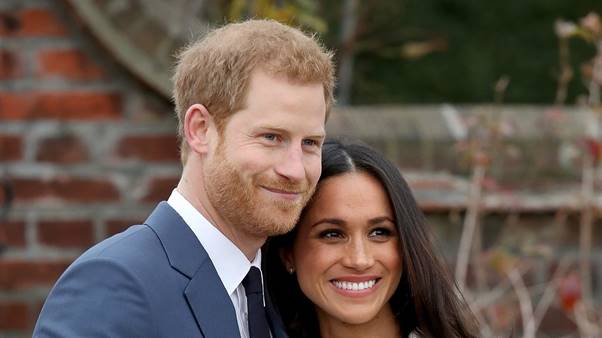Harry’s drawback of royalty is straightly not outta Compton
By Gboko Stewart
Contributing Writer
The Perspective
Atlanta, Georgia
January 22, 2020

Prince Harry and Meghan Markle. Photo: Courtesy of Getty
With a keen interest, I've followed Prince Harry and his quits from the life of royalty he's known all his life.
As a little kid, growing up, I, alongside my mom, followed everything about Princess Diana and the lives of her kids. Truth be told, we always felt her death was an orchestration of powerful forces.
Whether it was a decree from the Windsors or probably the British government's bid to save its traditional institution, the monarchy, from being polluted with Arab blood, it's a mystery for ages to come.
But Harry and Meghan's announcement of quitting from the royal life is a bubbling which began since his mother was killed in that horrible car crash in August 1997 under the tunnels of Paris.
To make it worse, he, alongside William, were coerced - by the dictates of so-called royal protocol - to painfully "man up" and walked behind his mother's coffin - in the full glare of the world - to Westminster Abbey.
This, I believe, was the breaking point and detachment of Harry from everything royal. Shoving aside his emotions to "man up" for the rest of the world was the cruelest thing to do to a young child.
Urging boys to man up and shove aside emotion is the breeding ground for fragile masculinity.
This is a situation which isn't unique to the royal family. Across Africa, boys are brought up not to show emotions but to man up.
This has often led to insecurity, and at the tail end of those insecurities, women and girls bear the brunt of it. Boys become men become violent. This leads to gender and sexual gender-based violence.
Stanford professor Judy Chu argues in her recent book When Boys Become Boys that it is culture rather than nature that incapacitates boys’ social and emotional skills.
Harry needed to cry. He needed to let it out. But on whose shoulders were it going to happen? Not on his father's who certainly didn't have emotions for kids because his mother's royal duties made him lost all that and he had to be cared for by nannies.
Not from Uncle Earl of the house of Spencer, or his aunties who were estranged from his mother. Certainly not from his nannies or governesses.
And so, when he grew up, he became rebellious. Wearing Nazi Swastika to costume parties, partying naked in America, he tries to find the meaning of his life. He hated deeply the culture, traditions and norms of royalty because it left him emotionally vulnerable for a long period.
They robbed him of the tears he genuinely wanted to shed over his mother.
Until he met Meghan, his life would never be the same. In her, he found a strong woman - one who would not cower. He could. Without her, he wouldn't have had the fortitude to stand up and challenge norms and traditions which are placed over the existence of one.
He would protect her from the rabid tabloids who hounded his mother in that tunnel in Paris following her departure from the Ritz Carlton, and she would man him up to challenge those norms and traditions.
And now, they have the full backing of the world, even if the rest of the United Kingdom are against them.
And you know what they say: "Once you go black, you never go back."
About the author: Gboko Stewart is a freelance writer, journalist and also the founder of journalRAGE, Liberia’s fist LGBT news magazine